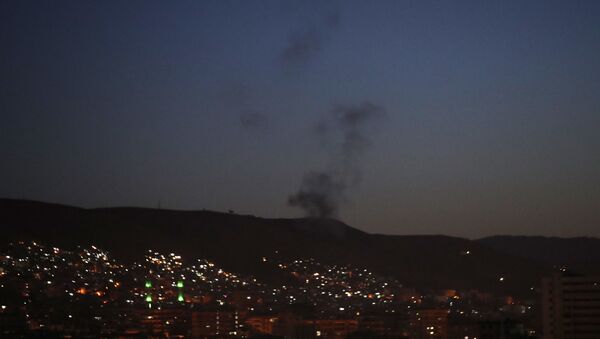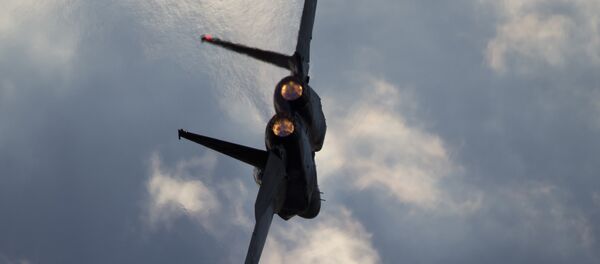The US Secretary of State is touring the Middle East, seeking to reassure allies after Donald Trump announced his decision to pull out US troops from Syria. Pompeo said that America will not retreat until the terror fight is over, adding that the US was a force for good in the region.
READ MORE: Mike Pompeo Heralds 'Real New Beginning' in US Middle East Policy
Sputnik discussed Mike Pompeo's Middle East tour and the statements he's made with Joseph Camilleri, Emeritus Professor at La Trobe University in Melbourne.
Sputnik: Let's take a look at Mike Pompeo's current Middle East tour and some of these statements he's made regarding America's goals in the Middle East; what's your take [on them]?
Joseph Camilleri: I think it reveals, as one is able to analyse, the chaotic situation in US foreign policy at this time; there's a great deal of confusion and I suspect there must be a good deal of confusion as well in the mind of the current Secretary of State. His whole message, the overriding message that he has been giving so far in his Middle East trip, has been the hostility towards Iran and the need to remove any vestige of Iranian influence in the Middle East.
I suspect that we're not going to hear much about these issues in the remaining part of Secretary Pompeo's visit to the Middle East. I'm referring, in particular, to the Arab-Israeli conflict, the Palestinian issue, the whole problem surrounding Saudi Arabia's both domestic and foreign policies and the increasing very poor reputation that the current Saudi government has earned through its policies at home and abroad, not least in Yemen; and the whole question of human rights, which traditionally was supposed to be a key plank of US foreign policy. Now there appears to be stunned silence, because so much of the focus is now on containing Iranian influence and inflicting as much punishment on the current Iranian government as possible.
Sputnik: Do you think Pompeo's statements received a good response from US allies? Because this was the whole purpose of the trip — to reassure US allies, to explain Donald Trump's decision to pull US troops [out] from Syria. Did he achieve this goal of reassuring them?
Therefore, on that question, he speaks with several voices. It's clear that, for example, this has many ramifications. One of them is that apart from applying maximum pressure on Iran and trying to dislodge the Iranian presence such as it is from Syria, there is not a word about what they see (regarding) the future of Syria and how it is going to proceed.
READ MORE: 'US Will Not Withdraw From Syria or Middle East at all' — Scholar
Have they now accepted the fact that the present government in Syria looks like (it's) maintaining power through whatever transition might occur in the near or foreseeable future? And if so, are they interested in talking with various countries, including, of course, Russia and the Europeans, about the future of Syria? So, it's not at all clear, and they are saying a lot of things about their relationship with a number of Arab governments, but they're remarkable quiet about US allies in Europe who have also a very strong interest in the future of the Middle East, let alone about the two other major powers in the world, namely Russia and China. So, the silence is as telling as the actual statements that have been made.
Sputnik: To add to the lack of clarity, of course, Pompeo did say that America would not retreat until the terror fight is over; and the policy had not changed but the tactics had changed. What is your view on the status of the fight against terror in the Middle East?
Joseph Camilleri: If they were to wait for the complete defeat of the last ISIS* (Daesh) militant anywhere in the Middle East, they would probably be waiting for a very long time — it might be decades, not just years. So, that is a silly statement to make. And even when they have driven Islamic militants from one country, they have often, just about every time, regrouped somewhere else. If it's not Afghanistan, it's Iraq; if it's not Iraq, it's Syria; if it's not Syria, it's some African country, Libya or somewhere else. So, this is only shifting the problem and it's not really resolving.
*Daesh (ISIL/ISIS/IS) is a terrorist group which is banned in Russia
The views and opinions expressed by the speaker do not necessarily reflect those of Sputnik.





